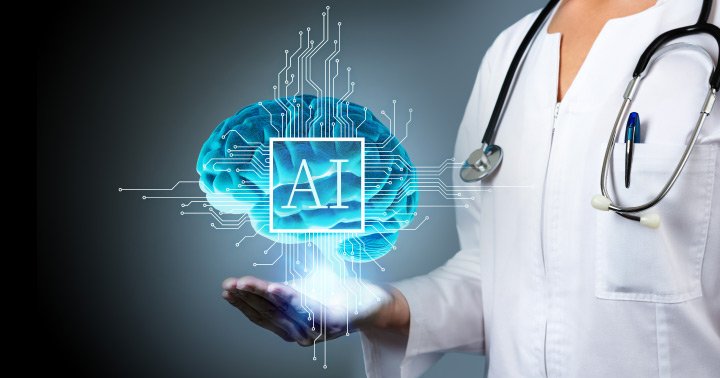
The Future of Artificial Intelligence in Healthcare
Artificial Intelligence (AI) is rapidly transforming numerous industries, and healthcare is arguably at the forefront of this revolution. From diagnosing diseases to personalizing treatment plans, AI’s potential to improve patient outcomes and streamline healthcare operations is immense. This article explores the current impact of AI in healthcare and delves into what the future holds.
Current Applications of AI in Healthcare
AI is no longer a futuristic concept in healthcare; it’s actively being used in various capacities today. Here are some key applications:
- Diagnosis and Imaging: AI algorithms can analyze medical images (X-rays, MRIs, CT scans) with remarkable accuracy, often surpassing human capabilities in detecting subtle anomalies. This leads to earlier and more accurate diagnoses of conditions like cancer, heart disease, and neurological disorders.
- Drug Discovery: The process of developing new drugs is lengthy and expensive. AI accelerates this process by analyzing vast datasets of biological and chemical information to identify potential drug candidates and predict their efficacy.
- Personalized Medicine: AI can analyze a patient’s genetic makeup, lifestyle, and medical history to create personalized treatment plans tailored to their specific needs.
- Robotic Surgery: AI-powered robots assist surgeons with complex procedures, enhancing precision, minimizing invasiveness, and reducing recovery times.
- Administrative Tasks: AI-powered chatbots and virtual assistants automate routine administrative tasks, such as scheduling appointments, answering patient queries, and processing insurance claims, freeing up healthcare professionals to focus on patient care.
- Predictive Analytics: AI algorithms can predict patient risk for developing certain conditions, allowing for proactive interventions and preventative care.
The Future Landscape: Emerging Trends
The future of AI in healthcare promises even more groundbreaking advancements. Here are some emerging trends to watch:
- AI-Powered Virtual Nurses: Sophisticated virtual nurses will provide continuous patient monitoring, medication reminders, and personalized health advice.
- Generative AI in Drug Design: Generative AI models will design novel molecules with specific therapeutic properties, dramatically accelerating drug discovery.
- Enhanced Remote Patient Monitoring: AI-powered wearable sensors and remote monitoring devices will enable continuous tracking of vital signs and early detection of health issues.
- AI-Driven Mental Healthcare: AI chatbots and virtual therapists will provide accessible and affordable mental healthcare support.
- Precision Public Health: AI will analyze population health data to identify disease outbreaks, predict healthcare needs, and optimize resource allocation.
- Explainable AI (XAI): Increasing focus on making AI decision-making processes transparent and understandable to healthcare professionals.
Challenges and Considerations
Despite its immense potential, the widespread adoption of AI in healthcare faces several challenges:
- Data Privacy and Security: Protecting sensitive patient data is paramount. Robust security measures and adherence to privacy regulations (like HIPAA) are crucial.
- Bias in Algorithms: AI algorithms can perpetuate existing biases in healthcare data, leading to disparities in care. Careful data curation and algorithm design are essential to mitigate bias.
- Regulatory Hurdles: The regulatory landscape for AI in healthcare is still evolving. Clear guidelines and approval processes are needed to ensure safety and efficacy.
- Integration with Existing Systems: Integrating AI solutions with existing electronic health record (EHR) systems can be complex and costly.
- Trust and Acceptance: Building trust among healthcare professionals and patients is vital for the successful adoption of AI.
A Look at Key Players
Several companies are leading the charge in AI healthcare innovation:
| Company | Focus Area |
|---|---|
| Google Health | Medical imaging, diagnostics, predictive analytics |
| IBM Watson Health | Drug discovery, personalized medicine, clinical decision support |
| PathAI | AI-powered pathology |
| Butterfly Network | Portable ultrasound with AI guidance |
| Tempus | Genomic data analysis for cancer treatment |
Resources for Further Exploration
Interested in learning more about AI in healthcare? Here are some helpful resources:
- HIMSS (Healthcare Information and Management Systems Society)
- FDA on AI/ML in Medical Devices
- National Library of Medicine - Artificial intelligence in healthcare
In conclusion, AI is poised to revolutionize healthcare, offering the potential to improve patient outcomes, reduce costs, and enhance the overall quality of care. While challenges remain, the ongoing advancements in AI technology and the growing investment in this field suggest a bright future for AI in healthcare.
